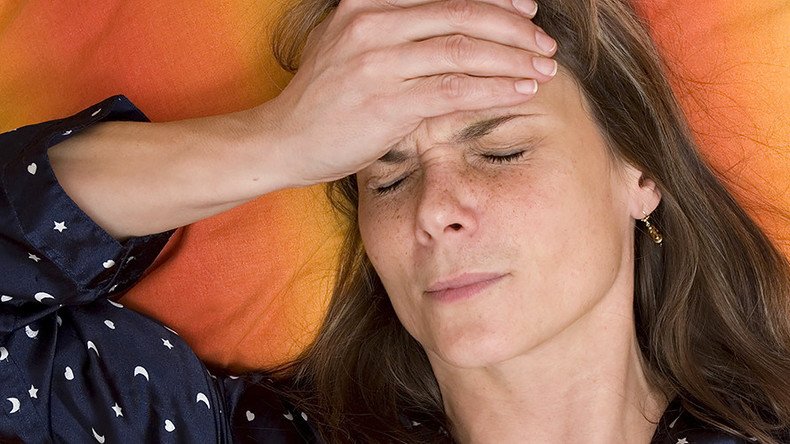Special K? Study shows ketamine greatly reduces pain for migraine sufferers

Research has suggested that the horse tranquiliser ketamine could help millions of migraine sufferers overcome the throbbing pain of the debilitating headaches.
The drug, which is widely abused for recreational purposes, has been found to be an effective treatment for people who fail to respond to other medications.
A study published in the Journal of Headache and Pain found that the drug, which is know by the street name of “Special K,” reduced the severity of headaches for 75 percent of sufferers. Details of the study were presented at the Anesthesiology Annual Meeting which is taking place in Boston, MA, this week.
READ MORE: What a headache! Migraines really could cost you your job, study shows
The study, which was led by Thomas Jefferson University Hospital, suggests that the horse tranquilliser may be an effective treatment for those who fail to respond to other medications.
The researchers gave the patients small doses of the drug for up to a week. The participants reported that the pain they felt was reduced from 7.5 to 3.4, on a linear 0-10 scale, when the treatment was at its most effective.
The patients involved in the study were all afflicted by intense enough headaches in the past three years that they had to be admitted to the hospital.
#Viral: ‘Killer’ nanomachines can destroy cancer cells within one minute, ground-breaking research finds https://t.co/rUlsQMqgo9
— RT (@RT_com) September 1, 2017
“Our study focused only on short-term relief, but it is encouraging that this treatment might have the potential to help patients long-term,” study co-author Eric Schwenk said in a statement. “Our work provides the basis for future, prospective studies that involve larger numbers of patients.”
An estimated 15 percent of people suffer from migraines. Sufferers are often very sensitive to light, sound and may become nauseated or vomit. Migraines are known to be three times more common in women than in men.












